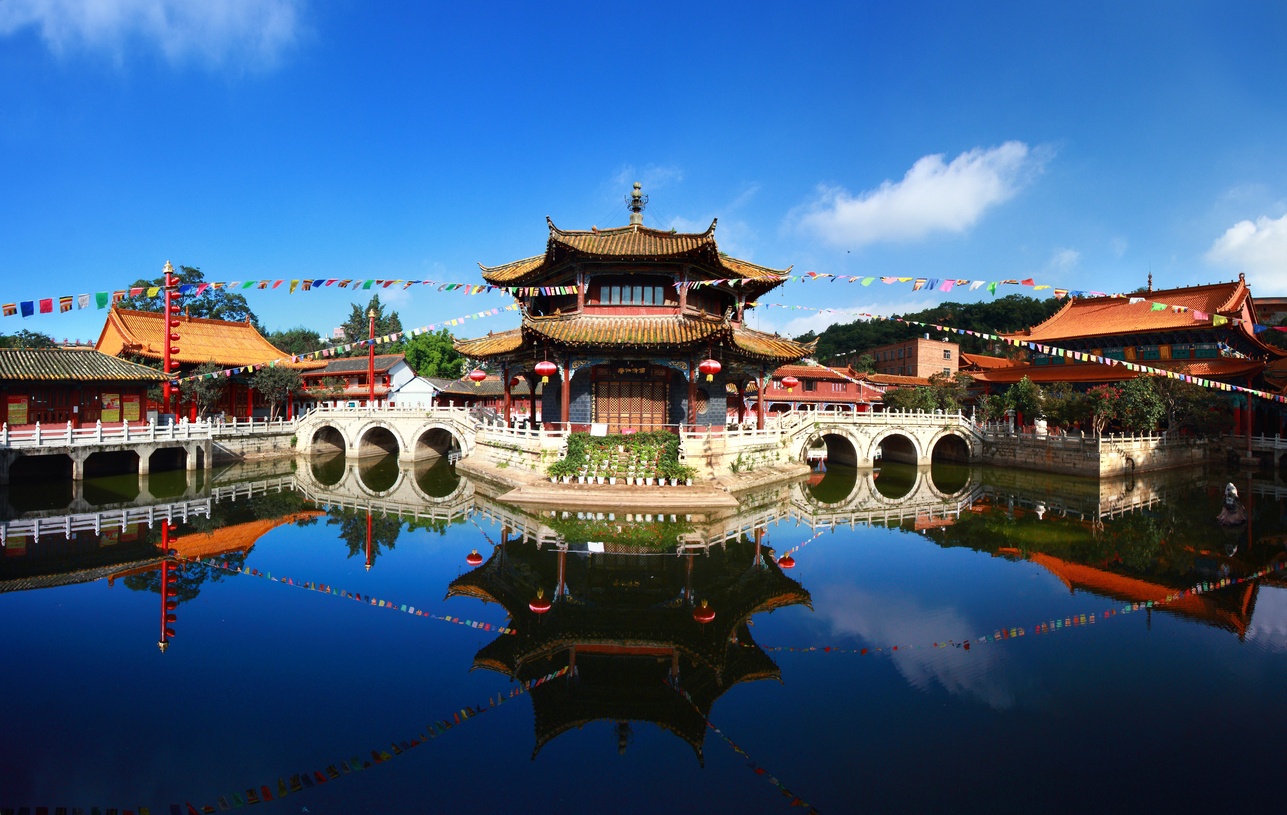Kunming, the capital of Yunnan province in southern China, offers expats a unique lifestyle with its beautiful natural scenery, diverse culture, and mild climate. However, living in Kunming also presents some challenges. This comprehensive guide examines both the pros and cons of relocating to this city as an foreigner.
Climate of Eternal Spring
Kunming residents enjoy a year-round mild and temperate climate thanks to the city’s high elevation of 1,900 meters. Summers are warm with average highs of 26°C while winters are cool with lows rarely dipping below freezing. This moderate climate has earned Kunming the nickname “City of Eternal Spring”. Expats from colder climates will appreciate not having to deal with extreme heat or bitter cold. Outdoor activities can be enjoyed throughout the year without worrying about uncomfortable temperatures. The climate also makes the city a popular tourist destination. However, locals do complain about higher levels of air pollution during winter months when temperatures drop.

Natural Beauty Surrounding the City
Kunming is located near several stunning natural attractions. Just 30 minutes outside the city are the famed Stone Forest natural rock formations eroded into fascinating pillar-like shapes over millions of years. A day trip can also be made to Dianchi Lake, the sixth largest freshwater lake in China, offering lovely views from walking paths along its shores. For outdoor enthusiasts, the countryside provides excellent opportunities for activities like hiking, biking and camping amid lush scenery. Expats eager to experience China’s natural beauty will find plenty to explore in the parks and landscapes close to Kunming.
Diverse Culture and History
As the largest city in southwest China, Kunming has a culturally rich makeup with over 25 ethnic minorities represented. Expats can immerse themselves in the unique traditions of the Bai, Yi, Hani and other indigenous peoples through festivals, performances, handicrafts and local cuisine. The old quarter dating back to the Ming dynasty retains charming architecture and temples. History buffs will enjoy learning about Kunming’s role as an important stop along the Tea Horse Trade Route. Its cultural diversity offers a interesting contrast to more homogeneous areas of China and a chance to gain insights into minority communities.
Low Cost of Living
Housing, food and transportation tend to be less expensive in Kunming compared to massive cities like Shanghai or Beijing. A comfortable lifestyle can be supported on a modest expat salary or pension. Rent for a two-bedroom apartment in a central area runs 3000-4000 RMB (450-600 USD) per month. Supermarkets offer high quality produce at affordable prices while public buses cover most of the city for just 2 RMB per ride. Healthcare is also quite reasonable. For expats looking to maximize their savings, Kunming presents a lower cost option than other major Chinese metros.
Convenient Transportation Network
Getting around Kunming is easy thanks to its developed public transportation. In addition to buses, the city operates a metro system with four lines and growing that allows traversing long distances for just 2 RMB. Major attractions are accessible via frequent bus routes for pennies. Taxis are also very inexpensive, usually less than 30 RMB even for longer rides. For those with their own vehicle, Kunming has good roads and signage. The city’s Zhongdian Airport provides flights to most large Chinese cities as well as regional destinations like Thailand. Overall, the transportation infrastructure facilitates exploring both within the city and beyond.
Language Barrier Challenges
While Mandarin signage is prevalent, the local dialect in Kunming is Southwestern Mandarin which differs somewhat from Standard Mandarin taught in foreign language programs. Even basic conversational ability may not always translate smoothly. Young urban residents often speak passable English but conversational skills diminish in rural areas. Important documents like leases or contracts still require Chinese fluency. Without language abilities, daily tasks from shopping to medical visits become difficult. Expats may find themselves quite isolated without an effort to learn the basics of Chinese. Cultural misunderstandings could also arise without language as a bridge. Committing time to language study is important for a comfortable long term stay.
Limited International Amenities
Kunming does not offer the dense concentration of international amenities available in global metropolises. Expats may miss familiar restaurants, entertainment options, or specialized goods and services. However, the city is developing as a destination with the opening of some international brand stores and the growing expatriate population. Organized activities catering to foreigners such as football or hiking clubs also provide social connections. With patience and initiative, it’s possible to piece together an international lifestyle, but preferences may not all be easily met locally as in other world cities. Adaptability is key when choosing Kunming.
Pollution Concerns
While considered one of China’s cleaner cities nationally, Kunming still experiences air pollution issues, especially during winter when temperatures drop. Inversions can trap pollutants close to the ground from emissions sources like vehicles, factories and residential stoves using coal for heating. Conditions may periodically exceed the World Health Organization’s air quality standards. Young children, elderly residents and those with respiratory conditions are most at risk. Short term visitors typically face little health impact but long term effects for full time residents remain uncertain. Air filters and masks provide some mitigation but cannot eliminate all risk. Pollution is a lifestyle factor expats must seriously weigh.
Lack of Major International Employment
Kunming hosts fewer multinational corporations maintaining international presences compared to first-tier coastal cities. Job opportunities tend to be centered around teaching English, with other prospects including modest international roles in tourism,imports/exports or development work. Careers requiring specialist credentials may have no local demand. Expats used to thriving professional markets face limited prospects without fluent Chinese and local industry knowledge. Maintaining existing remote employment or starting an independent business may be better options. Ambitious career-focused individuals may find reaching their full potential challenging in Kunming’s environment.
Weighing the Pros and Cons
In conclusion, Kunming holds appeal as a comfortable lifestyle destination for expats with its temperate weather, natural attractions, and affordability. However, those unwilling or unable to commit to Chinese language study or lacking flexibility may struggle to find fulfillment long term. Career minded professionals or families with young children sensitive to pollution may prefer other domestic or international locales offering stronger safety nets. While not ideal for everyone, adventurous individuals enthusiastic about Chinese culture will likely enjoy Kunming if realistic about its limitations as a second home. As with any global relocation, thorough research tailored to individual needs and priorities helps determine the best fit.

 PlayStation 5 vs PlayStation 4: A Detailed Hardware Comparison
PlayStation 5 vs PlayStation 4: A Detailed Hardware Comparison